It is time to acknowledge that 2022 has been another great year for OpenNebula, and one of the reasons is because we’ve been able to keep incorporating powerful and innovative new features to our open source Cloud and Edge Computing Platform! 🤓 This has been possible thanks to the commitment of our Community, the support of our Corporate Users, and the amazing job that every single member of the OpenNebula Team has done throughout the year, so congratulations to everyone! And as we prepare ourselves for the developments and adventures that lie ahead in 2023, let’s take a few minutes to look back at what we’ve accomplished together in 2022! 🎉
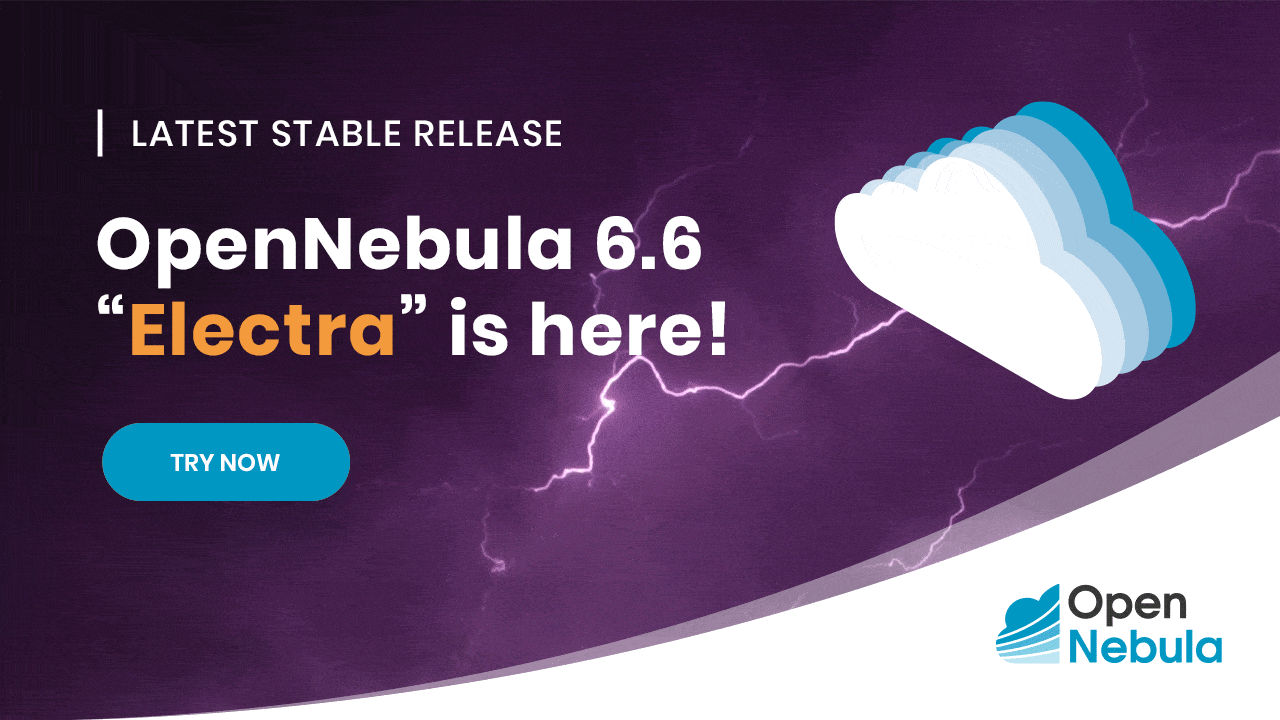
Technology
🌌 By now, you’ve already probably seen the news: we just published our latest stable release a couple of weeks ago! OpenNebula 6.6 “Electra” comes with an express focus on supporting Day-2 operations in production deployments, including:
- A novel integration of Prometheus for enterprise monitoring, combined with new Grafana dashboards for optimal observability.
- A new native support for incremental backups based on datastore back-ends and the development of new drivers for restic and rsync.
- Improved networking to meet the requirements of Telco Cloud operators, including several improvements for managing virtual networks and VNFs.
🖖 But that’s not all! In May 2022 we launched a previous minor release—currently our latest LTS version—the amazing OpenNebula 6.4 “Archeon”, followed by the publication later in the year of two EE Maintenance Releases. Some of the major new features in this release included:
- The ability to automatically deploy and manage hyperconverged Edge Clusters based on Ceph—the powerful open source software-defined storage solution—using AWS or on-premise resources.
- Better integration with your datacenter networking infrastructure with life update of security groups and QinQ support.
- A fully functional new FireEdge Sunstone GUI for managing VM templates and instances.
- New SR-IOV support for NVIDIA GPU cards.
- Fine-grain resource control to the LXC driver
- Improved integration with VMware vCenter.
- Support for Ubuntu 22.04 and AlmaLinux 9.
- Access to our new Edge-as-a-Service platform Edgify.
🎆 Apart from producing the new 6.4 “Archeon” LTS and 6.6 “Electra”, in 2022 we also published an additional EE Maintenance Release for 5.12 (our first LTS version) and two EE Maintenance Releases for the previous version 6.2 “Red Square”, which worked as a fast-track for our corporate users to benefit from novel features such as:
- An improved version of OneProvision, the tool that allows you to quickly deploy and configure Edge Clusters into your OpenNebula cloud.
- Early support for AlmaLinux 8, the increasingly popular Linux distribution designed to fill the gap left by the discontinuation of the CentOS stable release.
- Access to a new WHMCS module, enabling you to easily incorporate automated billing for your users based on their cloud resource usage.
📔 In 2022, as usual, we’ve kept publishing in-depth Blog Posts and Public Materials about key aspects of OpenNebula, including:
- The presentation of Edgify, the new Edge-as-a-Service platform we launched in January as one of the main outcomes of our European innovation project ONEedge.
- The announcement about the new WHMCS module available in OpenNebula EE.
- A guide on how to use the enhanced OneProvision to deploy Edge Clusters.
- A blog post explaining how we are building the new OpenNebula GUI: “FireEdge Sunstone”
- Another blog post explaining how we’ve improved the LXC driver with support for CPU Pinning.
- A guide to help you set up an open source VDI with OpenNebula and Guacamole.
- A new white paper on OpenNebula’s Enhanced Platform Awareness (EPA) where we present the current capabilities of OpenNebula to address, among other things, the requirements for Network Function Virtualization (NFV) deployments.
- Another white paper on how to manage your Kubernetes clusters with OpenNebula using our latest CNCF-certified K8s virtual appliance OneKE, which is based on SUSE Rancher’s RKE2 and is enhanced with a number of exciting new features.
- New resources explaining how OpenNebula is becoming the leading open source alternative to VMware, including a revamped landing page for VMware customers and a new Competitive Pricing Review showing how to get cost savings of up to 80% by migrating from VMware to OpenNebula.
- A new Edge Cloud landing page explaining how to use OpenNebula to integrate remote edge nodes into your private cloud for creating your own Private Edge Cloud.
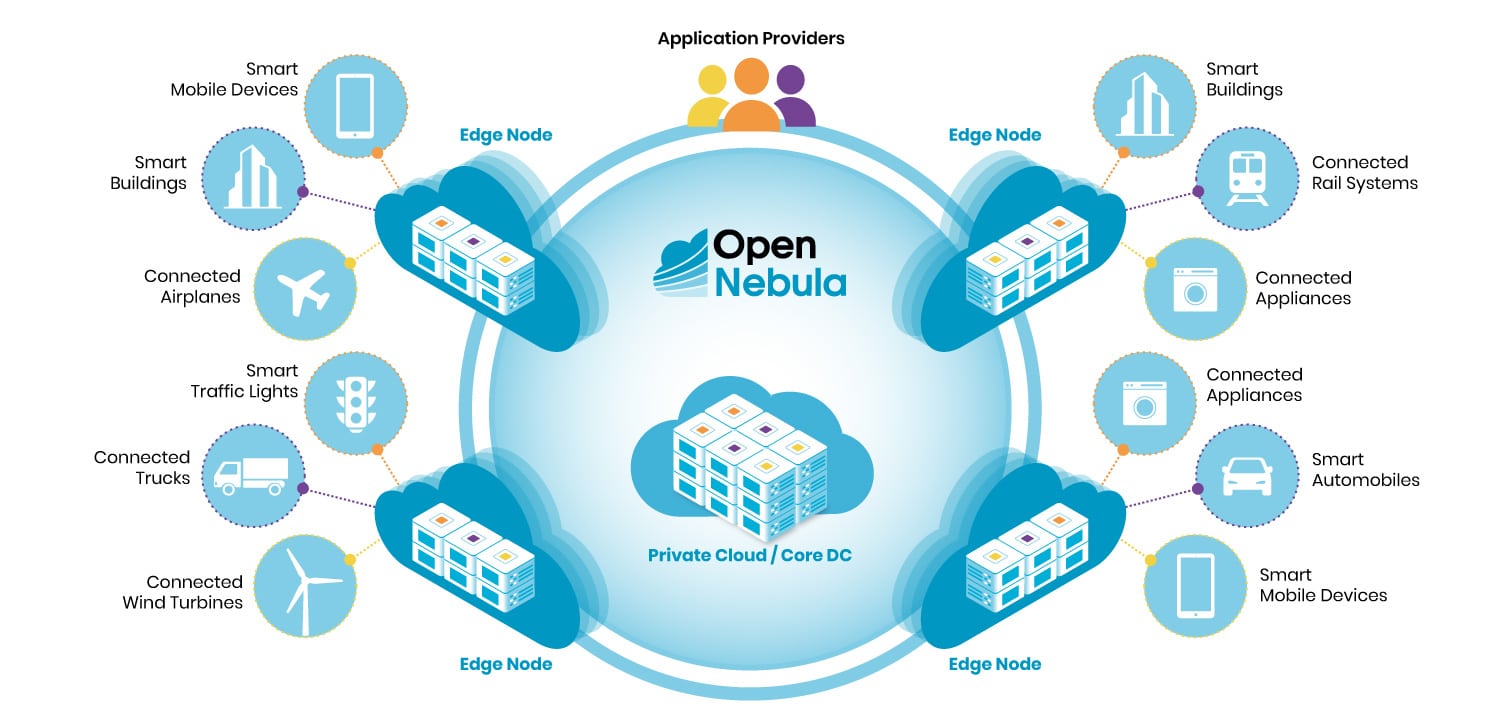
📝 Our team has also been quite busy in 2022 expanding our Knowledge Base with new articles for our corporate users, including these:
- Creating a Private Marketplace
- How to Use OneStor with VM High Availability
- CentOS 7 to AlmaLinux 8 Migration Guide
- How to Unregister vCenter Images from OpenNebula
- LDAP Authentication: A Complete Guide
- How to Create a Virtual Data Center
- Manage Permissions on VM Templates: A Practical Guide
- Basic Usage of OpenNebula Terraform Provider
- How to Migrate OpenNebula DB and Configuration Files
Community
🥰 Kudos to all our community for an amazing year, especially to those Community Champions that have contributed in 2022 to spreading the word about OpenNebula! Special thanks to our friends and colleagues at:
- Iguane Solutions, for their constant commitment to improving the Terraform provider for OpenNebula, adopting Terraform SDK v2, and making it possible to finally launch version 1.0.0 of the provider in September 2022.
- The Flemish Department of Environment and Spatial Planning, for participating as speakers at the Zabbix Summit in Riga (Latvia) back in October to present how they are using Zabbix to monitor their OpenNebula private cloud infrastructure across several datacenters.
- Telefónica, the Spanish telecom/5G operator, for an amazingly detailed article on how they have been combining OpenNebula, OVS, and DPDK to deal with a challenging NFV scenario.
- Growens, for providing valuable insight on how they are using OpenNebula for DevOps.
- EveryMatrix, for helping us publish an inspiring Case Study explaining how OpenNebula covered all their requirements for a Private Cloud solution.
🔭 As always, part of our efforts during the year have also been focused on keeping our Public Marketplace updated, incorporating new open source products as public Virtual Appliances, like:
- Ubuntu 22.04
- Ubuntu Minimal 22.04
- Debian 12 (beta)
- OpenNebula Kubernetes Engine (OneKE), including a new template for Master and Worker VMs, a new template for Storage VMs, and a new appliance for running Virtual Network Functions (routing, NAT, DNS, DHCP) as regular VMs.
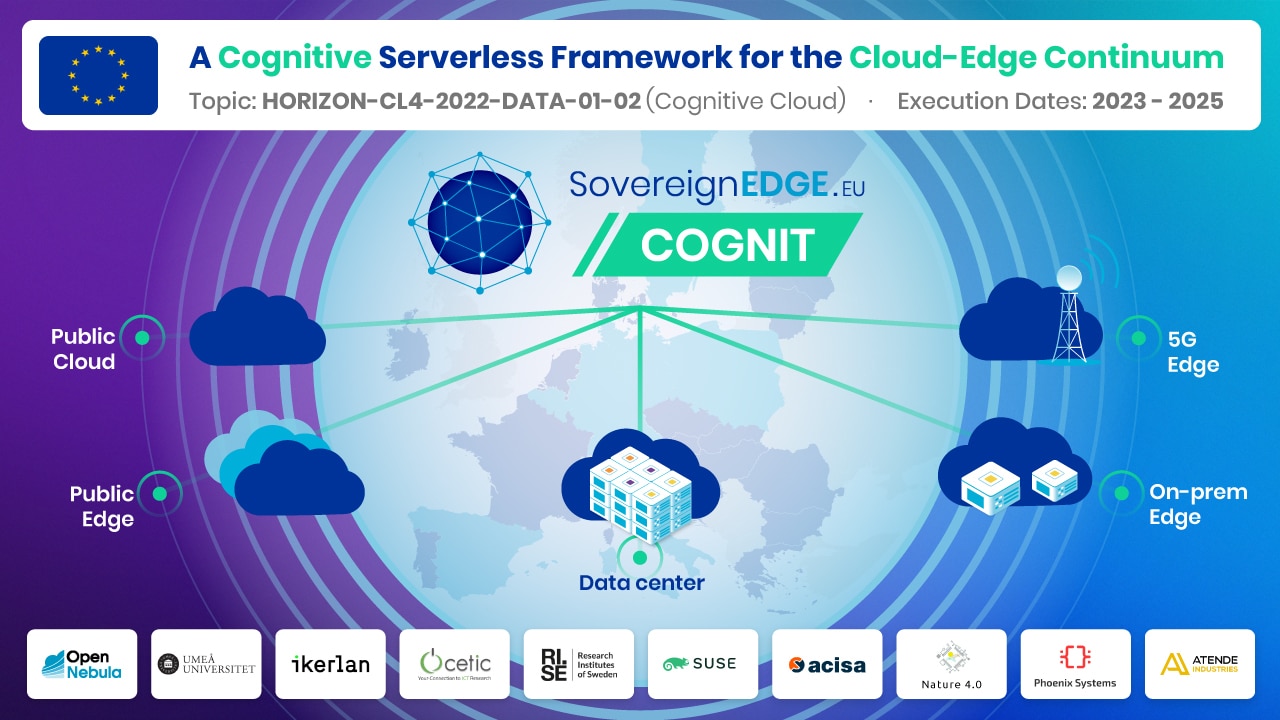
💪 And, of course, we’ve also been as active as possible in many relevant Open Source and Edge Computing initiatives, making sure that Open Source innovation remains one of our core principles:
- Bringing our European innovation project ONEedge (2019-2022) to a successful end.
- Coordinating the submission of a successful proposal to the new 🇪🇺 Horizon Europe research and innovation program, which has helped us secure nearly 6M EUR for the recently launched COGNIT project (2023-2025).
- Supporting the successful 6G-SANDBOX proposal to the European Smart Networks and Services funding program, a project in which OpenNebula will be used to build an advanced 6G experimentation facility.
- Publicly supporting, as corporate members of the Linux Foundation, CNCF, and LF Edge, the formation of the new LF Project Sylva by the EU telecom industry.
- Launching a new cooperation agreement with ThreeFold Tech that will involve a closer integration with their highly distributed, global P2P edge infrastructure.
- Joining Structura-X, the new Gaia-X lighthouse project for European cloud infrastructure.
- Working as Direct Participants and coordinators of the OSMOP.EU Macro Project to make sure that the upcoming IPCEI-CIS becomes a reality by the end of 2023.
- Accepting the invitation of the European Commission to join the new Alliance for Industrial Data, Edge and Cloud, and assuming a key coordinating role as Chairing Company of the industry-led Cloud-Edge Working Group.
Outreach
📡 Even if we are all slowly transitioning back to a world where physical events can finally take place again, we decided to run our Community events in 2022 following a virtual format—for obvious reasons, but also as a way to make them more inclusive for members of our Community that couldn’t join us in person. The experience, in fact, was very positive!
- As a final adieu to our European innovation project ONEedge, we held a first virtual event in late March 2022. This was a great opportunity to share with the open source community the new edge computing and multi-cloud features developed through the project, and to bring together friends and colleagues from major organizations like the European Commission, Gaia-X, the Research Institutes of Sweden, Telefónica, Oracle, and SUSE to talk about open source innovation and edge computing.
- And just a couple of months later we had our first-ever, fully virtual edition of the OpenNebulaCon! This was a three-day conference filled with keynote presentations, amazing use cases, and in-depth thematic sessions in which we were joined by an impressive line-up of 40 speakers from 25 different organizations that joined us to make this a wonderful event. Special thanks to our sponsors, StorPool and LINBIT!
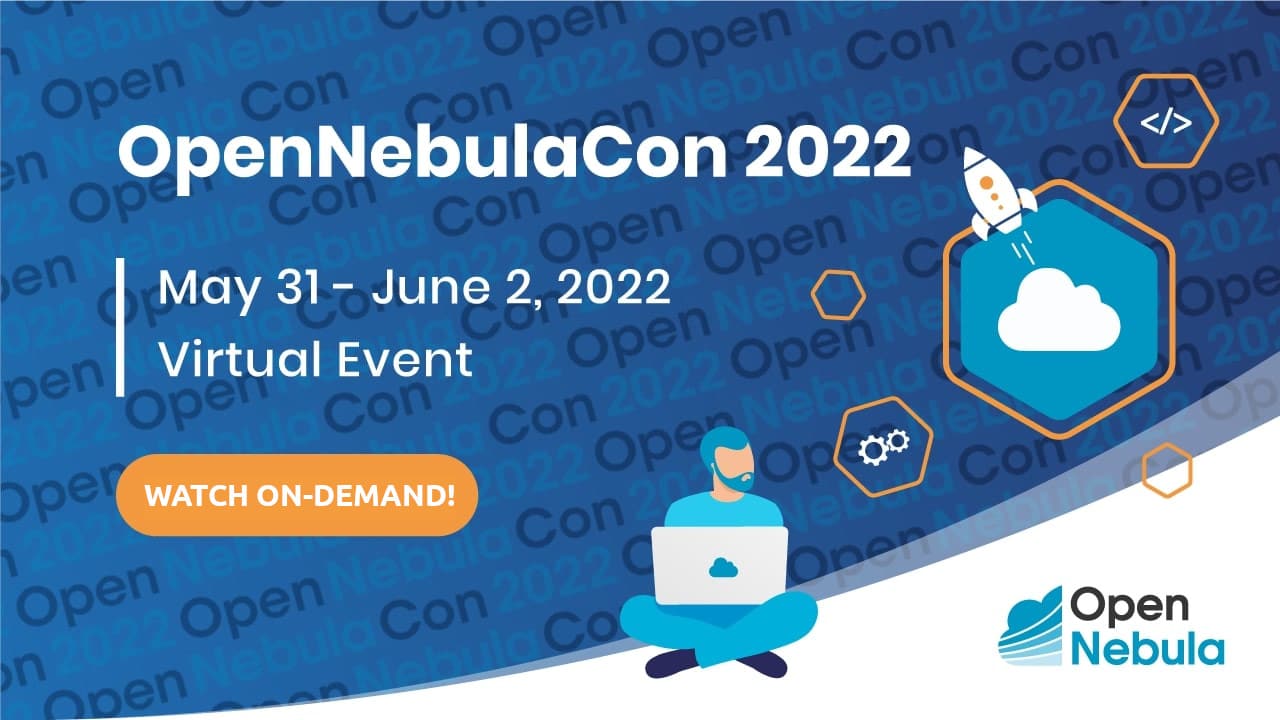
🤖 And, of course, we’ve been participating in many open source and industry events, spreading the word about the benefits and amazing features of OpenNebula, including:
- The EU Open Source Policy Summit 2022 as corporate sponsors.
- FOSDEM 2022, showcasing how to use OpenNebula’s new Edge Cloud Architecture for deploying VMs and Containers across infrastructure providers.
- Cloud Expo Europe Frankfurt as sponsors and exhibitors, participating also in the co-located HORIZON CLOUD Summit.
- Layer123 Reunion.
- The 16th edition of the RES Supercomputing Conference.
- A new edition of the Vienna DevOps Roundtable, organized by OpenNebula’s Service Partner FullStackS.
- Cloud Expo Europe Madrid as sponsors and exhibitors, with an amazing talk by David Artuñedo, explaining how he and his innovation team at Telefónica have been using OpenNebula’s latest features to successfully deploy 5G edge clouds.
- Open Source Experience Paris, with a presentation on how we see the evolution of the open source ecosystem in Europe.
- The Workshop on Open Source and Cloud Computing organized by the European Commission in Brussels.
So, as you can see, 2022 has been quite a year for OpenNebula… but we are sure 2023 will be even better! So, stay tuned for the amazing developments that lie ahead of us, and Happy New Year to y’all! 🚀
The OpenNebula Team
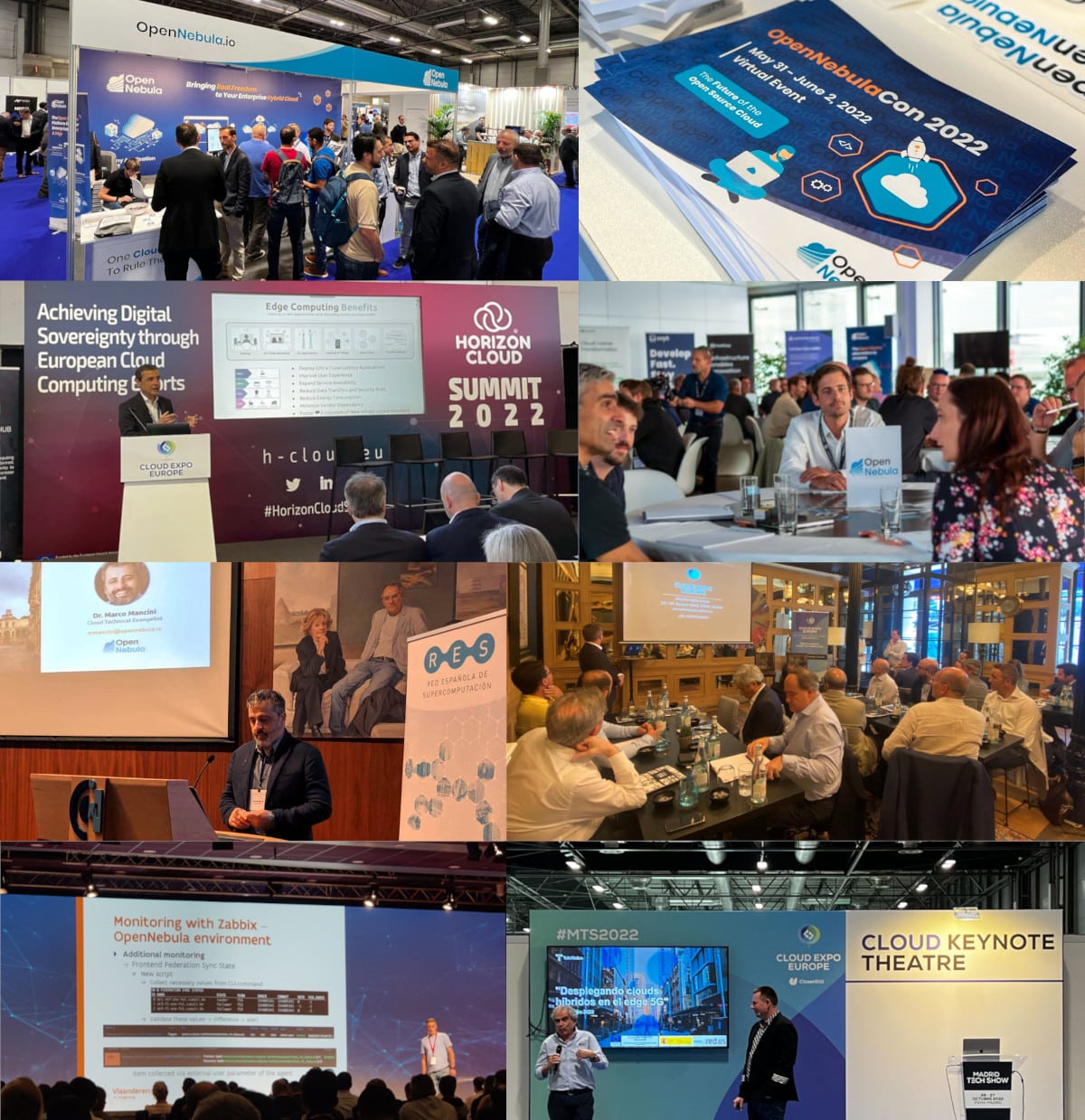
ℹ️ Remember that our team is growing! Visit our Careers page for more details about our all-remote policy and the open positions that you can apply to. Looking forward to hearing from you!

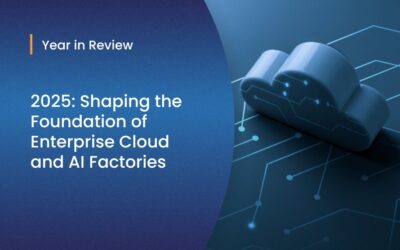

0 Comments